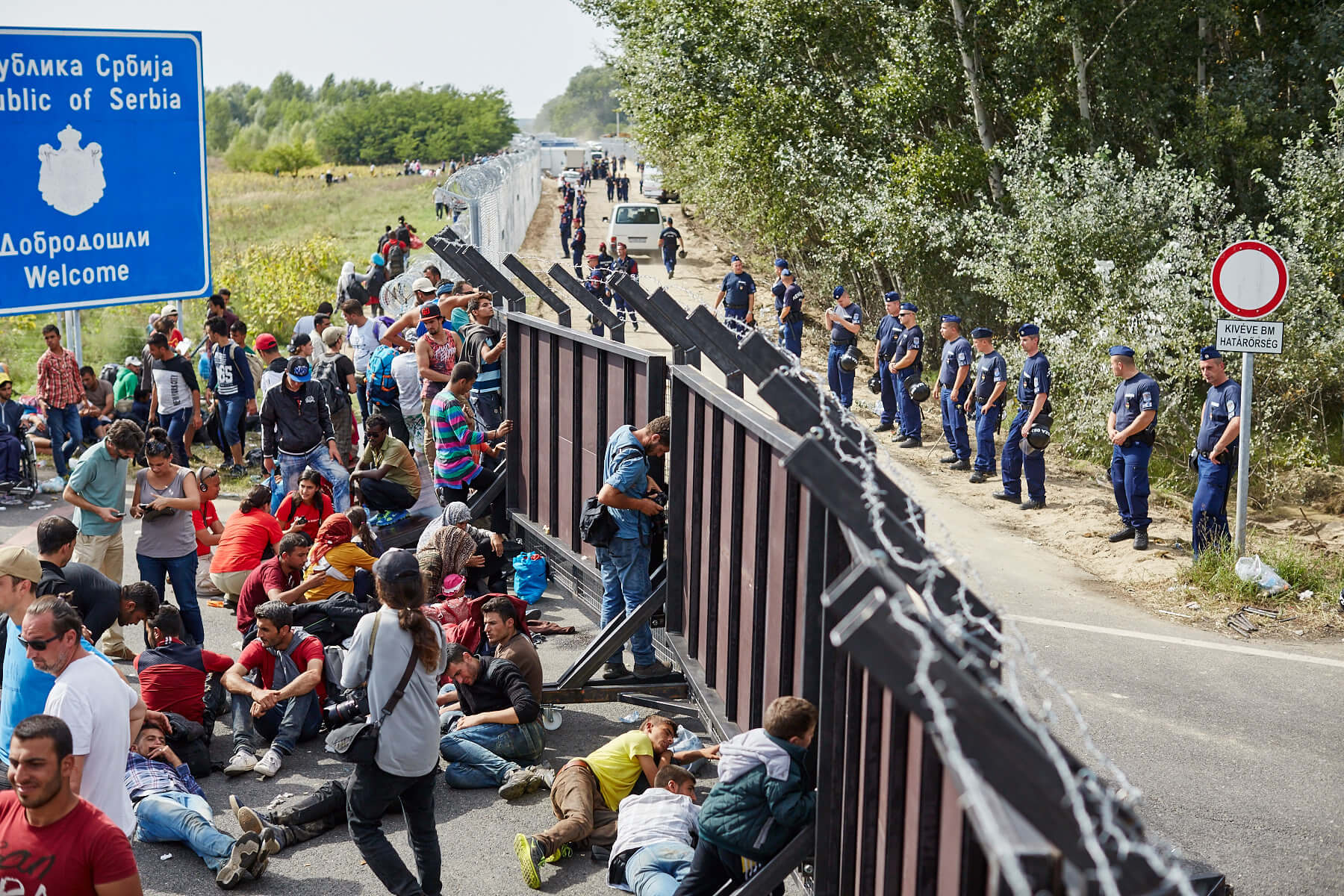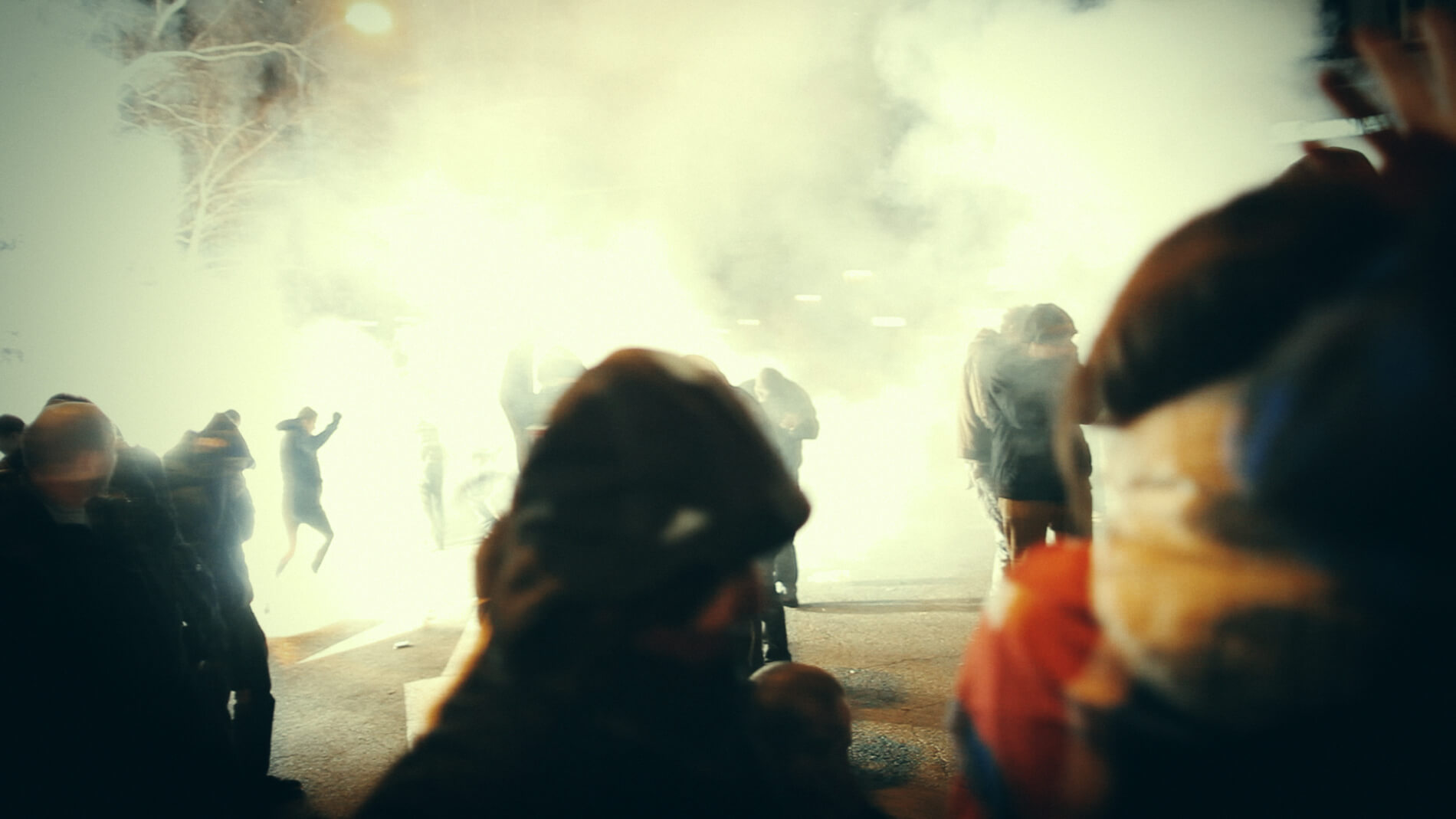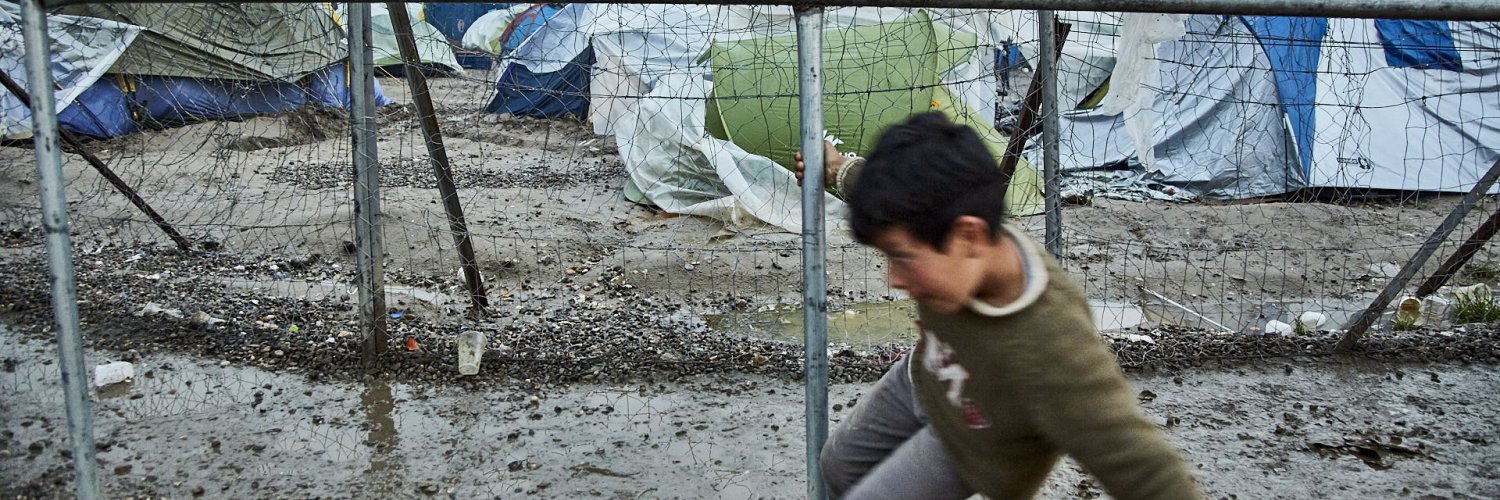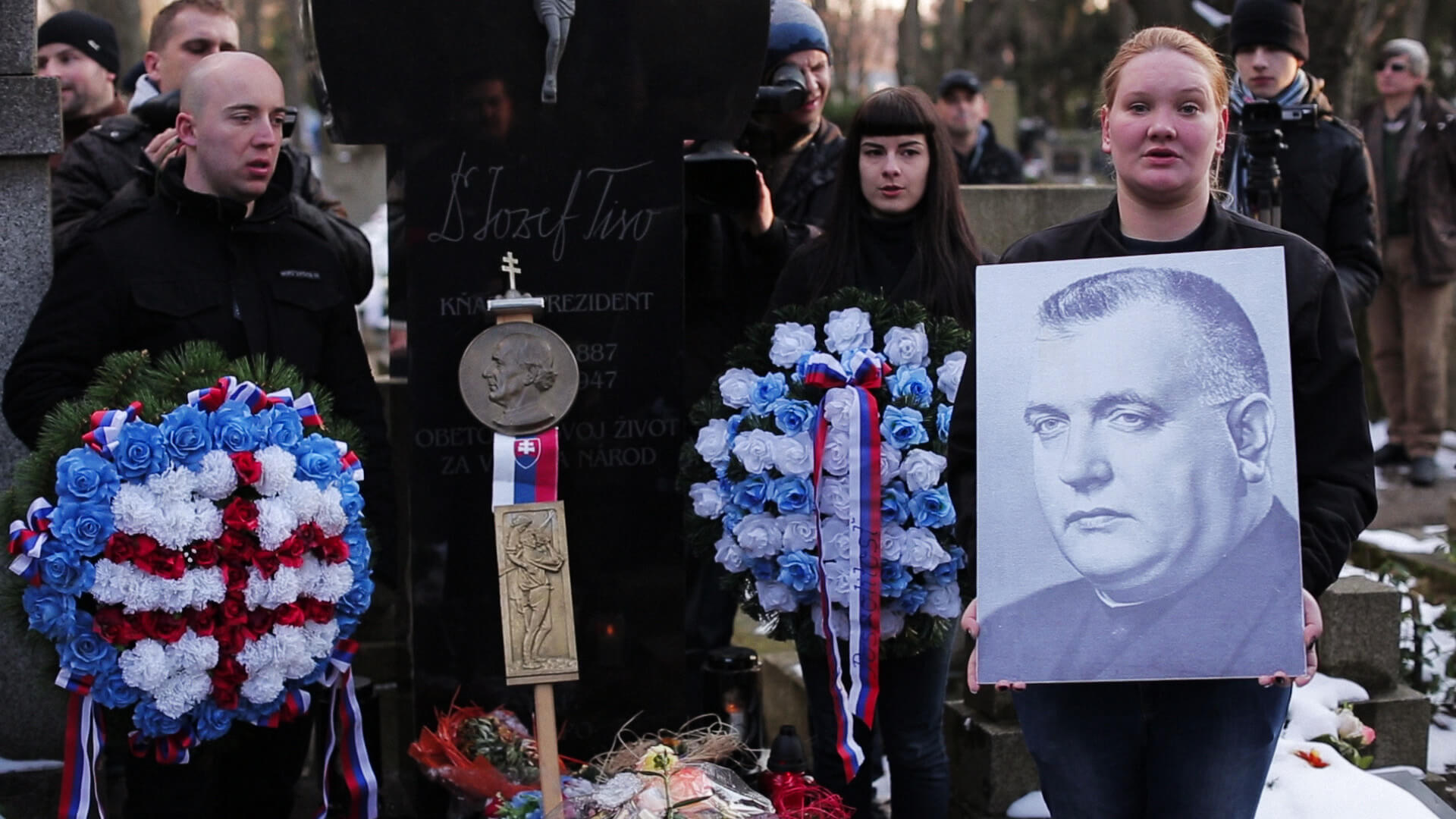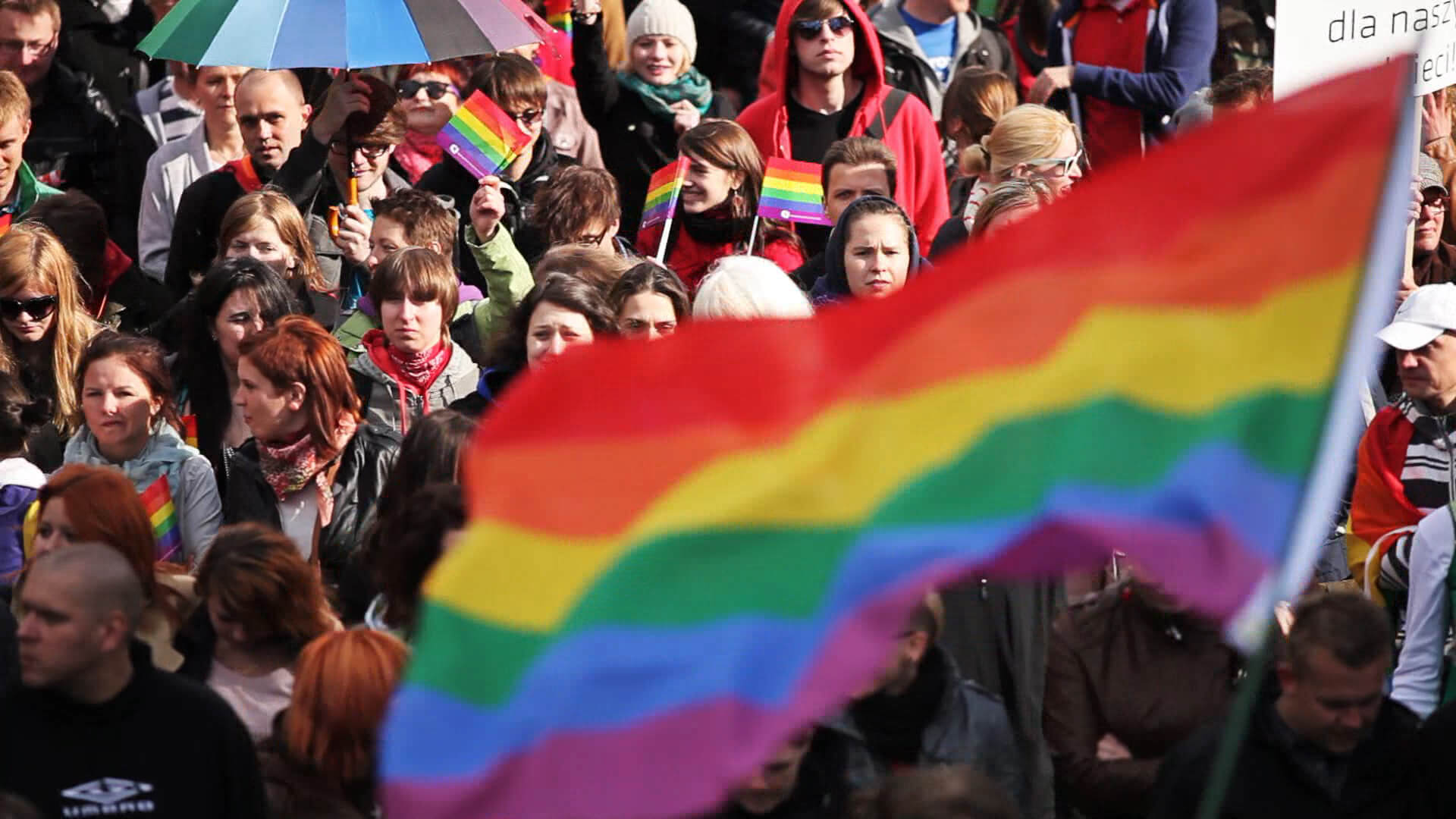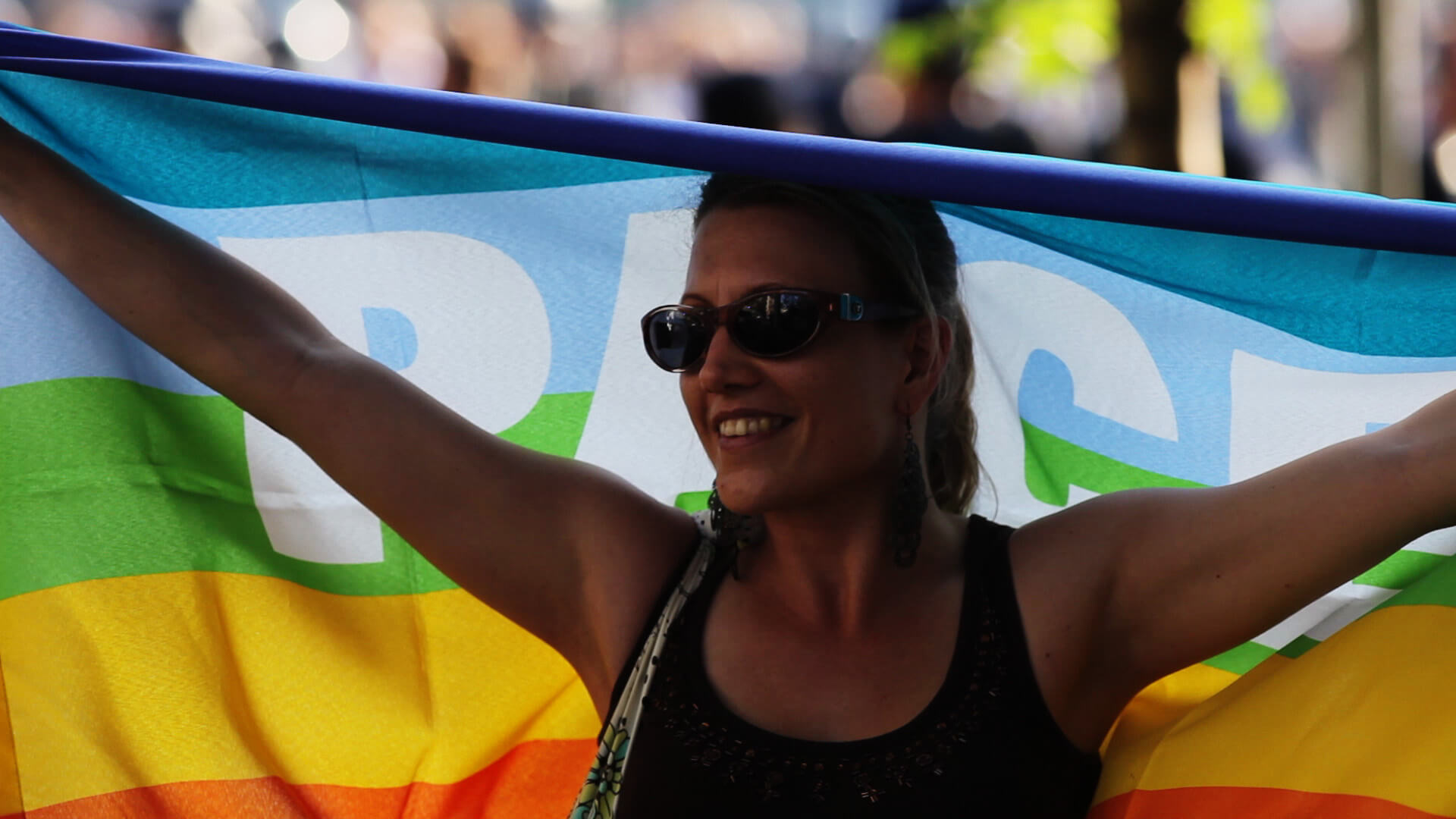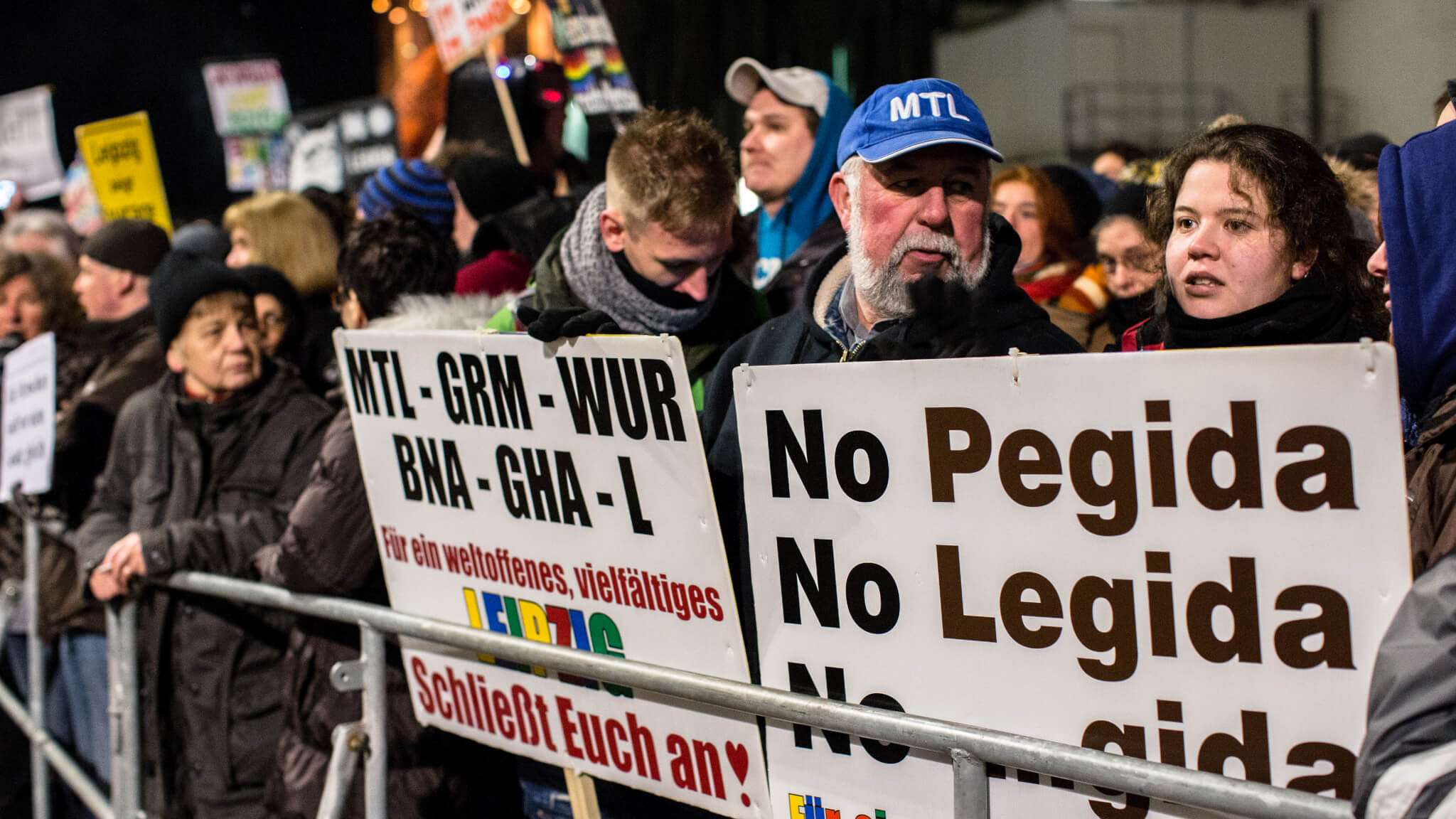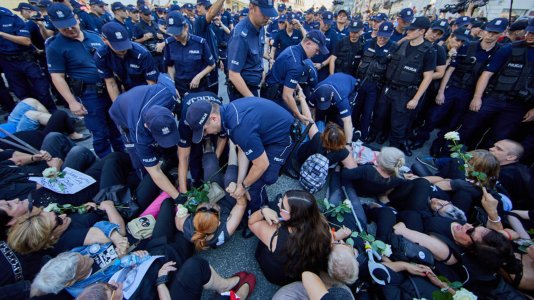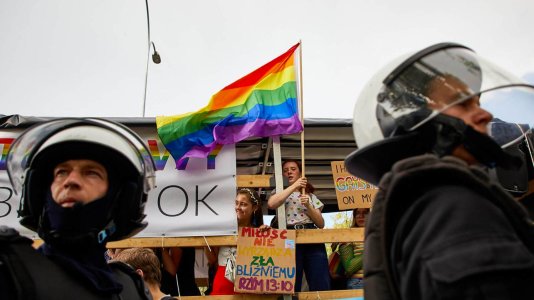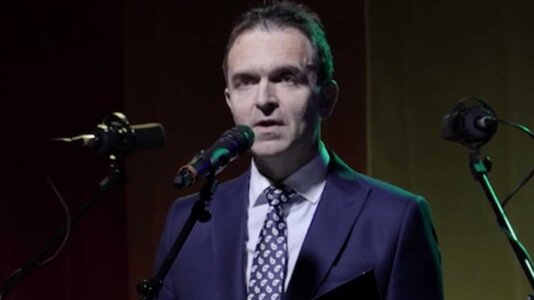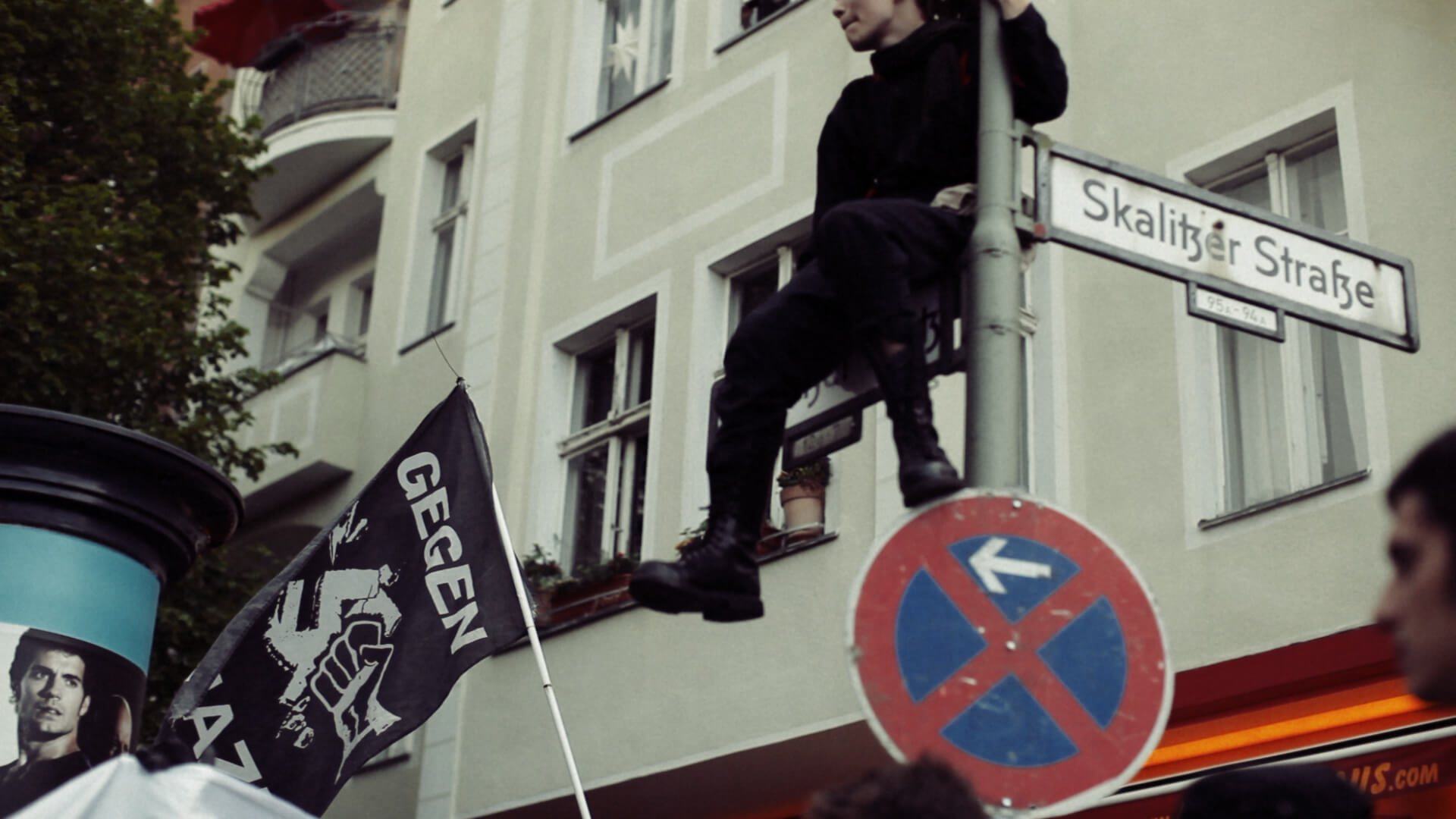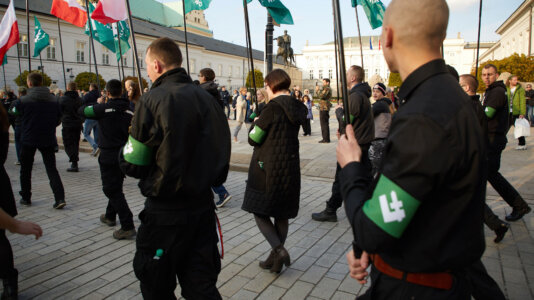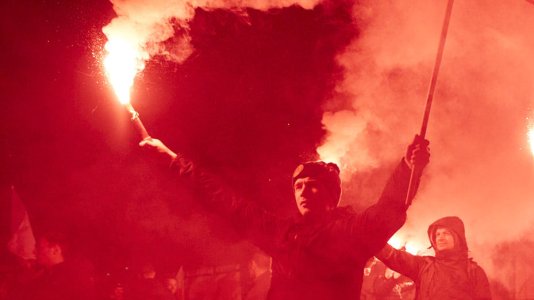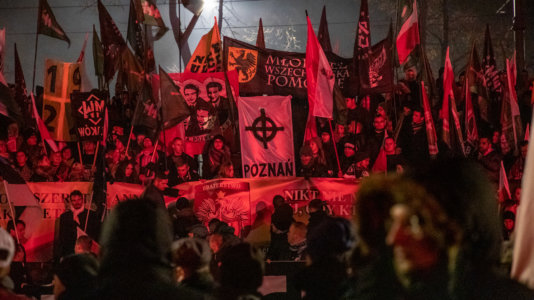Legida, short for “Leipzig gegen die Islamisierung des Abendlandes” is a German right-wing populist movement that emerged as an offshoot of the more prominent Pegida movement. Legida, which is centered in the eastern city of Leipzig, was established in early 2015 and has been organizing weekly demonstrations since then. Like Pegida, Legida’s stated aim is to protest against what it sees as the Islamization of Germany and the perceived failure of the German government to...
New York, USA, 11.2.2012. On February 11th Occupy Town Square at the West Park Presbyterian Church on west 86th St brought together activists young and old, seasoned veterans and newcomers, Marxists, anarchists, socialists, bloggers, screen-printers, dreamers, and me. Walking in I found myself unexpectedly incredibly moved by the atmosphere of camaraderie and, dare I say it, family. It felt so good to be together again in solidarity, occupying the same space, with my brothers and sisters in...
The Röszke Horgos refugee camp, located on the Hungarian-Serbian border, has become a stark representation of the ongoing refugee crisis in Europe. As the influx of refugees and migrants continues, camps like Röszke Horgos have become a focal point for the humanitarian issues faced by those fleeing war, persecution, and poverty. Established in 2015, the Röszke Horgos camp quickly gained notoriety for its appalling living conditions and the harsh treatment of its inhabitants. With limited access...
On Thursday, August 17th, 2017, police in Poland forcefully removed feminist activists who were participating in a sit-in to block the route of a far-right rally in central Warsaw. The Women’s Strike group and activists from Obywatele RP, who aimed to defend democratic principles in Poland, were attempting to prevent several dozen extremists from marching on Poland’s Armed Forces Day. The feminist protesters, many holding photos of Heather Heyer, the American woman killed during a...
The Medyka-Shehyni border crossing has become emblematic of the humanitarian and racial complexities that emerged in the early days of the war in Ukraine. While Poland opened its borders to millions of Ukrainian refugees fleeing the Russian invasion in February 2022, the initial wave of solidarity revealed underlying racial biases and inequities in the treatment of refugees. The Humanitarian Divide During the first days of the conflict, images of long lines at the Medyka crossing were broadcast...
On July 20th, 2019, a Pride parade in the city of Bialystok, Poland turned violent when far-right groups clashed with LGBTQ activists. However, as the parade began, counter-protesters began to hurl insults and objects at the marchers, including rocks, bottles, and firecrackers. Some counter-protesters even attempted to break through police barriers to physically attack the parade participants. The violence continued to escalate throughout the day, with police using tear gas and water cannons to...
On October 12, 2023, a commemorative gathering was held on Zámocká Street in Bratislava to mark the first anniversary of the terrorist attack outside the LGBTQ+ bar Tepláreň, where Juraj Vankulič and Matúš Horváth tragically lost their lives. The event, titled “Matúš and Juraj, We Will Not Forget,” drew hundreds of attendees who came to honor the victims and show support for the LGBTQ+ community. Prime Minister Ľudovít Ódor delivered a speech at the gathering, emphasizing the importance of...
On May 1st, Berlin’s Kreuzberg neighborhood became the scene of traditional leftist May Day demonstrations, with thousands of people taking to the streets to protest against social inequality, low wages, and further social cuts. Despite the peaceful nature of the earlier rallies, the situation escalated later in the day, with clashes between protesters and police officers. The police responded with pepper spray, water cannons, and arrests, and more than 7,000 police officers were deployed...
On April 29, 2017, the far-right nationalist group Obóz Narodowo-Radykalny (ONR, or National Radical Camp) held a controversial march in Warsaw, Poland. The event marked the anniversary of the ONR’s founding in the 1930s, an era when the group was known for its xenophobic, anti-Semitic, and ultra-nationalist agenda. The march was met with widespread criticism from human rights organizations, left-wing activists, and civic groups. Opponents accused the ONR of promoting hate speech and extremist...
There are some issues in which, in contrast to others, most of the former SFR Yugoslavia countries are not falling behind compared to other countries of Europe. One of those issues is, of course, the new nationalism which is widespread over the whole Europe and its frequency is dependant on the country and the region in which it is manifested.As in other European post-socialist countries, right-wing politics was the most usual orientation of the new governments, which in the case of SFRY was...
Tens of thousands of nationalists marched in a demonstration organized by far-right groups in Warsaw on November 11th, 2017, as Poles celebrated their country’s Independence Day. The far-right march has become one of the largest such demonstrations in Europe, overshadowing official state observances and other patriotic events. Participants carried banners depicting a far-right symbol dating to the 1930s and expressed sympathy for xenophobic or white supremacist ideas. Speakers spoke of...
On July 7, 2012, the annual Budapest Gay Pride Parade took place amidst a backdrop of heightened security measures, as the event drew both passionate supporters and vehement opponents. The parade served as a vibrant celebration of the lesbian, gay, bisexual, and transgender (LGBT) community in Hungary while also highlighting the challenges faced by the community in a tense social and political climate. The 2012 Budapest Gay Pride Parade saw thousands of participants take to the streets...
















